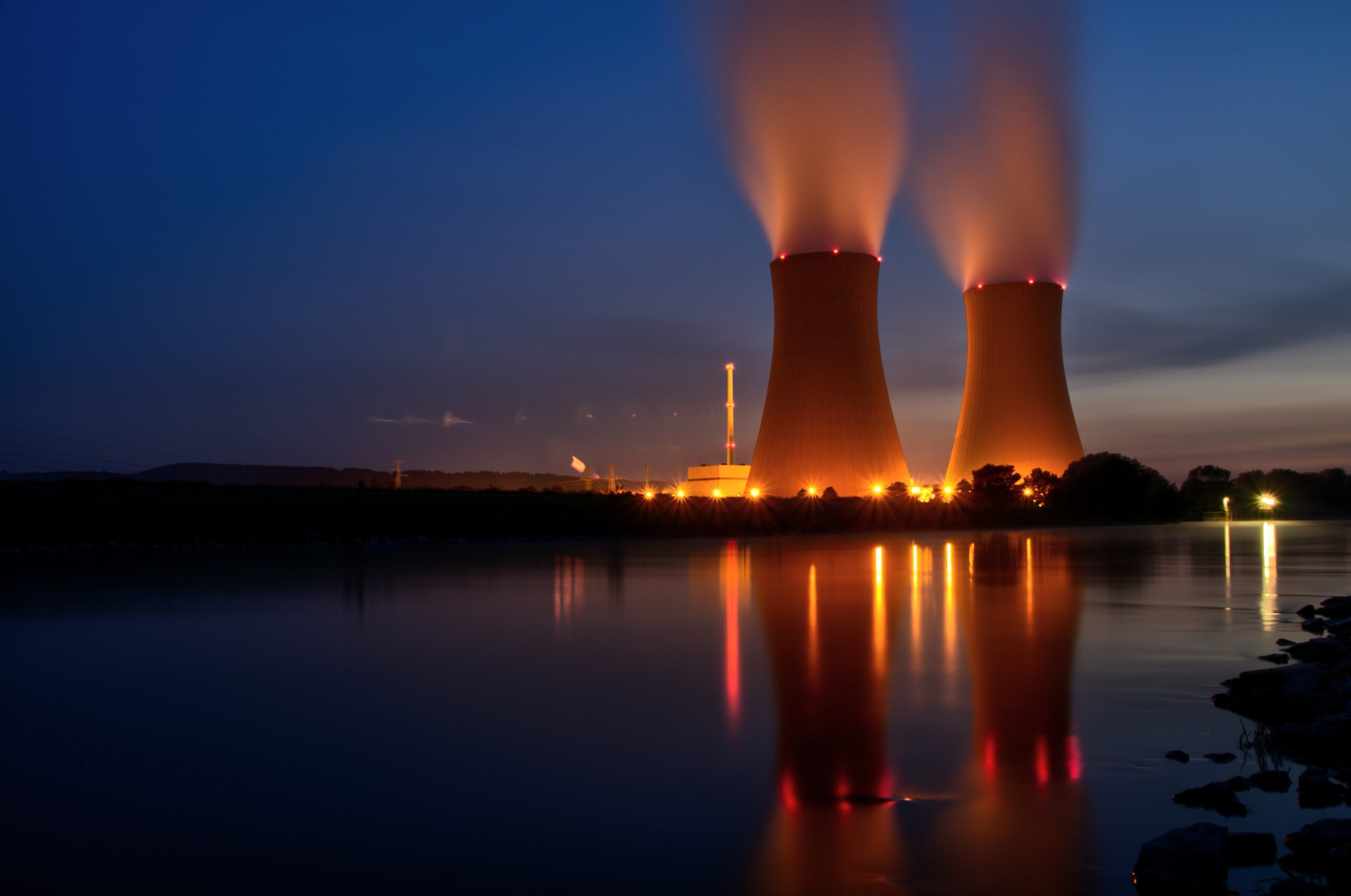8 Evident Advantages of Nuclear Power
For decades, the advantages of nuclear power has been a subject of fervent debate, eliciting strong opinions and sparking contentious discussions on its safety, efficacy, and environmental impact. Yet, amidst the discourse, it’s crucial to recognize the undeniable advantages of nuclear power.
Nuclear energy stands as a cornerstone of modern energy production, offering multiple advantages of nuclear power that extend beyond its capacity to generate electricity. As we delve into the advantages of nuclear power, we uncover a tapestry of benefits that address pressing global challenges while driving innovation and economic growth.
In this comprehensive post, we’ll delve deep into the advantages of nuclear power, examining how it:
- Fights Climate Change: Nuclear energy plays a significant role in reducing greenhouse gas emissions. As a low-carbon energy source, it helps combat climate change by providing a stable and reliable alternative to fossil fuels.
- Enhances Energy Security: By diversifying the energy mix and reducing reliance on imported fuels, nuclear power contributes to national energy security and stability.
- Drives Economic Growth: The nuclear industry supports economic growth through job creation, technological advancements, and investment in infrastructure.
- Fosters Innovation: Nuclear power encourages the development of advanced technologies and fuels, paving the way for innovations in energy production and safety.
From its reliability in delivering consistent power output to its potential as a long-term solution for sustainable development, nuclear energy offers a multifaceted approach to addressing the pressing challenges of our time.
How Nuclear Energy Fights Climate Change
In the battle against climate change, the advantages of nuclear power emerges as a formidable ally, offering a low-carbon alternative to traditional fossil fuels. By harnessing the energy released from nuclear reactions, power plants generate electricity without emitting greenhouse gases such as carbon dioxide. This inherent cleanliness positions nuclear energy as a vital component of efforts to mitigate global warming and reduce our carbon footprint. The advantages of nuclear power in combating climate change are evident, offering a reliable pathway towards a greener, more sustainable energy future.
The Carbon-Free Advantage
Nuclear power plants generate electricity through nuclear fission, a process that does not rely on the combustion of fossil fuels. Unlike coal, natural gas, and oil-fired power plants, which release carbon dioxide (CO2) and other greenhouse gases into the atmosphere, the advantages of nuclear power to produce electricity without emitting any CO2 during operation is evident. This inherent carbon-free attribute of nuclear energy is instrumental in reducing greenhouse gas emissions and mitigating the impacts of climate change.
Renewable Integration
The advantages of nuclear power predominantly serves as a source of electricity generation, its potential for carbon mitigation extends beyond the power sector. Emerging technologies such as nuclear-powered district heating and industrial process heat offer opportunities to further reduce carbon emissions in sectors traditionally reliant on fossil fuels. Additionally, the advantages of nuclear power can play a vital role in facilitating the electrification of transportation through the production of hydrogen fuel via electrolysis, thus reducing reliance on fossil fuels in the transportation sector.
The integration of nuclear energy into various sectors beyond electricity generation presents a promising pathway toward a more sustainable future. By leveraging the advantages of nuclear power for district heating, industrial process heat, and hydrogen fuel production, we can significantly reduce carbon emissions and mitigate the impacts of climate change. These advancements not only enhance the versatility of nuclear power but also play a vital role in the transition to a low-carbon economy. With continued research, development, and implementation, nuclear power can become an indispensable component of a cleaner, greener future.
Avoiding Deforestation and Land Use
The expansion of renewable energy sources such as biomass and hydropower often involves land-intensive activities such as deforestation, land clearing, and habitat destruction. In contrast, the advantages of nuclear power require relatively small land footprints compared to renewable energy installations, conserving valuable ecosystems and biodiversity. By minimizing land use and preserving natural habitats, the advantages of nuclear power contributes to the conservation of terrestrial ecosystems and the protection of endangered species.
The advantages of nuclear power are undeniable in their contribution to combating climate change. From its low carbon emissions and reliability to its high energy density and longevity, nuclear energy offers a multifaceted solution to the pressing challenges of global warming. By harnessing the advantages of nuclear power and investing in its continued development, we can accelerate the transition towards a greener, more sustainable future for generations to come. The advantages of nuclear power are indisputable in their capacity to combat climate change and ensure a sustainable future for generations to come.
Advantages of Nuclear Power in Consistent Output
One of the defining advantages of nuclear power is the ability to operate continuously for extended periods, often achieving high capacity factors upwards of 90%. Unlike renewable energy sources such as solar and wind, which are subject to variability due to weather conditions, the advantages of nuclear power are evident to provide a steady and predictable source of electricity, ensuring grid stability and reliability. This continuous operation is essential for meeting baseload demand, particularly during peak consumption periods or when intermittent renewables are unavailable.
Long Operational Life
Nuclear power plants are designed and built to operate for several decades, with many reactors exceeding their initial design life through life extension programs and refurbishment efforts. The advantages of nuclear power facilities enables them to provide reliable electricity generation over extended periods, contributing to long-term energy security and stability. By investing in the maintenance, refurbishment, and modernization of existing nuclear assets, countries can maximize the value of their infrastructure and prolong the operational life of their power plants, ensuring continued reliability and performance.
Grid Stability
The reliability advantages of nuclear power output plays a vital role in maintaining grid stability and balancing supply and demand in electricity systems. Nuclear reactors serve as anchor points in the grid, providing a reliable baseload of electricity that complements the variable output of renewable sources such as solar and wind. This diversity of generation sources helps to mitigate the impacts of intermittency and variability, ensuring a resilient and robust electricity supply that can adapt to changing conditions and demand patterns.
The advantages of nuclear power plants plays a vital role in maintaining grid stability and balancing supply and demand in electricity systems. Nuclear reactors serve as anchor points in the grid, providing a reliable baseload of electricity that complements the variable output of renewable sources such as solar and wind. This diversity of generation sources helps to mitigate the impacts of intermittency and variability, ensuring a resilient and robust electricity supply that can adapt to changing conditions and demand patterns.

How Nuclear Power Enhances Independence
The advantages of nuclear power plays a crucial role in diversifying the energy mix of nations, reducing dependence on a single source of fuel for electricity generation. Unlike fossil fuels, which are subject to price fluctuations and supply disruptions, nuclear energy relies on uranium, a widely available and geopolitically diverse resource. By incorporating the advantages of nuclear power into their portfolios, countries can mitigate the risks associated with over-reliance on imported fuels and enhance their energy security.
Indigenous Fuel Resources
Many nations possess significant reserves of uranium or thorium, the primary fuels used in nuclear reactors. By harnessing indigenous fuel resources, countries can reduce reliance on imported energy sources and enhance their energy independence. Moreover, the development of domestic uranium mining and fuel processing capabilities creates economic opportunities and strengthens the domestic nuclear industry, further bolstering national sovereignty and resilience.
Decentralized Power Generation
The advantages of nuclear power plants are that they’re often located within the borders of the countries they serve, providing a decentralized source of electricity generation that is less vulnerable to disruptions in global energy markets or geopolitical tensions. Unlike imported fossil fuels, which must be transported over long distances via pipelines or shipping routes, the advantages of nuclear power are that it can be securely stored and transported within national borders, reducing exposure to external risks and vulnerabilities.
Nuclear power offers a decentralized source of electricity generation that enhances energy security and independence. By being located within national borders, the advantages of nuclear power provide a reliable and secure source of energy that is less vulnerable to disruptions in global energy markets. Embracing the advantages of nuclear power not only ensures a stable and reliable energy supply but also strengthens national security and contributes to a more sustainable future.
Resilience to Geopolitical Shocks
In an increasingly interconnected world, geopolitical tensions and conflicts can have far-reaching impacts on energy markets and supply chains. Nuclear power provides nations with a resilient and self-sufficient source of electricity that is less susceptible to geopolitical shocks or disruptions. By investing in nuclear infrastructure and capabilities, countries can fortify their energy resilience and insulate themselves from external pressures, ensuring the uninterrupted supply of electricity to meet domestic needs.
The advantages of nuclear power enhances security by diversifying energy sources, maintaining strategic fuel reserves, harnessing indigenous fuel resources, decentralizing power generation, and building resilience to geopolitical shocks. By embracing the advantages of nuclear power, nations can strengthen their sovereignty, promote economic development, and safeguard their energy future.
The Enduring Advantages of Nuclear Power
The advantages of nuclear power relies on abundant fuel sources such as uranium and thorium. The Earth’s crust contains vast quantities of uranium ore, enough to sustain nuclear power generation for centuries to come. Furthermore, ongoing advancements in fuel cycle technologies, such as reprocessing and advanced reactor designs, promise to extend the availability of nuclear fuel resources and enhance their utilization efficiency, ensuring long-term sustainability of nuclear energy.
Resilience to Climate Change
As the impacts of climate change become increasingly evident, the advantages of nuclear power offers a resilient and climate-resilient source of electricity that is less susceptible to extreme weather events, sea level rise, and other climate-related hazards. Unlike renewable energy sources such as solar and wind, which may be affected by weather variability and changes in precipitation patterns, nuclear reactors operate independently of external conditions, providing a stable and reliable source of baseload electricity. By diversifying the energy mix and reducing reliance on fossil fuels, nuclear energy strengthens energy resilience and helps to mitigate the impacts of climate change on energy systems and infrastructure.
Technological Innovation
The advantages of nuclear power holds immense promise for technological innovation and advancement. From small modular reactors (SMRs) to advanced reactor designs such as molten salt reactors and high-temperature gas-cooled reactors, nuclear technology is evolving to meet the challenges of the 21st century. These innovative reactor designs offer scalability, flexibility, and enhanced safety features, opening up new possibilities for decentralized power generation, grid integration, and energy system optimization. By embracing innovation and research collaboration, the advantages of nuclear power can continue to drive technological progress and unlock the full potential of nuclear energy for sustainable development.
The advantages of nuclear power offers a pathway to long-term sustainability, providing a reliable, low-carbon, and environmentally responsible source of electricity. By leveraging abundant fuel reserves, minimizing environmental impact, developing waste management solutions, enhancing resilience to climate change, and fostering technological innovation, the advantages of nuclear power holds the promise of powering a sustainable future for generations to come.
Job Growth and Economic Impact
The advantages of nuclear power is significant for job creation, offering employment opportunities across a wide range of industries, from construction and engineering to research and development. The construction, operation, and maintenance of nuclear power plants require a skilled workforce, including engineers, technicians, scientists, and project managers. Moreover, the nuclear industry supports a broad supply chain, providing additional employment in manufacturing, transportation, and service sectors. By creating high-quality, high-paying jobs, the nuclear sector contributes to economic growth, stability, and prosperity in local communities and regions.
Direct and Indirect Economic Benefits
The advantages of nuclear power stimulate economic activity through direct and indirect contributions to the economy. The construction of a nuclear power plant involves significant investment in materials, equipment, and labor, driving growth in the construction industry and related sectors. Once operational, the advantages of nuclear power continues to generate economic value through the sale of electricity, providing a steady revenue stream for utilities and contributing to national GDP. Furthermore, the nuclear industry fosters innovation, research, and development, spurring technological advancements and enhancing industrial competitiveness.
Local and Regional Development
The advantages of nuclear power can catalyze local and regional development, attracting investment, infrastructure, and skilled labor to surrounding areas. Nuclear power projects create demand for goods and services, leading to the establishment of businesses, housing developments, and community facilities. Moreover, the advantages of nuclear power can enhance the attractiveness of a region to other industries, such as manufacturing, technology, and healthcare, further diversifying the local economy and creating a favorable business environment. By fostering economic growth and development, nuclear energy contributes to the prosperity and well-being of communities and regions.
Supply Chain Development
The nuclear industry relies on a complex and diverse supply chain, encompassing a wide range of goods and services, from reactor components and fuel assemblies to safety systems and waste management solutions. The advantages of nuclear power development and maintenance of this supply chain create additional employment opportunities and economic value, supporting small and medium-sized enterprises (SMEs) and local businesses. Moreover, the advantages of nuclear power supply can enhance industrial capabilities and expertise, promoting innovation, quality, and efficiency in manufacturing and service delivery.
Export Potential
The advantages of nuclear power presents significant export potential, offering countries the opportunity to share expertise, technology, and know-how with international partners. By exporting nuclear technology, equipment, and services, countries can stimulate economic growth, generate revenue, and enhance diplomatic relations. Furthermore, the advantages of nuclear power promotes international collaboration, global security, safety, and non-proliferation, fostering peace and stability in the international community. By leveraging export opportunities, countries can position themselves as leaders in the global nuclear market and drive economic development on a global scale.
Skills Development and Training
The nuclear sector invests in skills development and training programs to build a competent and qualified workforce capable of meeting the industry’s needs. Training initiatives, apprenticeships, and educational partnerships provide individuals with the knowledge, skills, and experience required to work in the nuclear industry. By investing in human capital, the advantages of nuclear power not only meets current labor demands but also prepares for future growth and innovation, ensuring a sustainable and resilient workforce for the long term.
The advantages of nuclear power plays a vital role in job creation, economic growth, and industrial development, contributing to the prosperity and well-being of nations. By creating employment opportunities, stimulating economic activity, fostering local and regional development, developing the supply chain, exploring export potential, and investing in skills development and training, the nuclear industry drives sustainable and inclusive growth that benefits society as a whole.
The Advantages of Nuclear Power’s Future Technology
The future of nuclear energy lies in advanced reactor designs such as Small Modular Reactors (SMRs) and Generation IV systems. The advantages of nuclear power include scalability, flexibility, and enhanced safety features, making these designs ideal for various applications, including remote power generation, industrial processes, and district heating. By reducing construction costs, lead times, and financial risks, SMRs open new possibilities for deploying nuclear energy in markets with smaller electricity demands or limited grid infrastructure. Furthermore, Generation IV systems, such as molten salt reactors and high-temperature gas-cooled reactors, promise even greater efficiency, sustainability, and safety, ushering in a new era of nuclear technology.
Research and Development
Investments in research and development (R&D) are crucial for advancing nuclear technology. Governments, research institutions, and industry stakeholders are collaborating on R&D initiatives focusing on reactor design, materials science, fuel cycle management, and waste treatment. These efforts aim to enhance the safety, performance, and cost-effectiveness of nuclear energy, paving the way for next-generation nuclear technologies. Supporting R&D strengthens nuclear capabilities, drives technological progress, and maintains leadership in nuclear energy.
Nuclear Innovation Hubs
Nuclear innovation hubs act as centers of excellence for research, development, and collaboration in the nuclear sector. These hubs unite industry stakeholders, research institutions, and government agencies to drive innovation, commercialization, and export of nuclear technology. By fostering a collaborative ecosystem, nuclear innovation hubs accelerate the development and deployment of nuclear technologies, spurring economic growth, job creation, and industrial competitiveness. They also serve as platforms for international cooperation, enabling knowledge sharing, technology transfer, and global capacity building.
Advantages of Nuclear Power in Carbon-Free Electricity
Nuclear power offers the ability to generate electricity through nuclear fission without producing carbon dioxide (CO2) or other greenhouse gases. Unlike fossil fuel-based power plants, which emit significant CO2, nuclear reactors operate without greenhouse gas emissions during normal operation. This makes nuclear energy a vital tool in transitioning to a low-carbon economy and mitigating global warming.
Mitigating Air Pollution
Conventional power plants emit harmful pollutants such as sulfur dioxide (SO2), nitrogen oxides (NOx), and particulate matter, contributing to air pollution and respiratory illnesses. By displacing fossil fuel-based generation, nuclear power helps mitigate air pollution and improve air quality, creating healthier communities.
Conserving Water Resources
Nuclear power plants use significantly less water for cooling compared to fossil fuel-based plants. Unlike coal, natural gas, and oil-fired power plants, which require vast amounts of water, nuclear reactors recycle and reuse water, reducing their impact on local water resources. This efficient use of water minimizes the environmental footprint of nuclear power plants, making them a sustainable option, particularly in water-stressed regions.
Life Cycle Emissions
Considering the entire life cycle of electricity generation, nuclear energy has one of the lowest emissions profiles of any energy source. While emissions are associated with uranium mining and processing, they are significantly lower than those of fossil fuels. Advancements in fuel cycle management, such as fuel recycling and reprocessing, further reduce the environmental impact of nuclear energy.
Energy Access
Access to affordable and reliable energy is crucial for economic development and social progress. The advantages of nuclear power offer a viable solution to energy poverty by providing scalable and cost-effective electricity, especially in regions with limited access to traditional energy sources. By electrifying rural communities and supporting economic growth, nuclear power plays a vital role in advancing energy access and sustainable development goals.
Long-Term Advantages of Nuclear Power in Sustainable Development
The advantages of nuclear power provides a carbon-free method of electricity generation, making it essential for a low-carbon economy and reducing air pollution. It enhances energy security by reducing reliance on imported fossil fuels, contributing to energy independence. Nuclear power also supports sustainable development goals by addressing energy poverty and driving economic growth through job creation and technological advancement.
Energy Security
The advantages of nuclear power to significantly contribute to enhancing energy security by reducing reliance on imported fossil fuels are evident. Countries with nuclear capabilities can diversify their energy mix and reduce vulnerability to supply disruptions or price fluctuations in the global energy market. By leveraging indigenous uranium resources or establishing strategic partnerships for fuel supply, nations can bolster their energy independence and strengthen their resilience to geopolitical uncertainties.
Sustainable Development Goals
The advantages of nuclear power offers a viable solution to address energy poverty by providing scalable and cost-effective electricity generation, particularly in regions with limited access to traditional energy sources. By electrifying rural communities, powering essential services, and supporting economic growth, the advantages of nuclear power plays a vital role in advancing energy access and sustainable development goals.
Waste Management Solutions
Effective management of nuclear waste is crucial for long-term sustainability. Advancements in waste treatment and disposal technologies, such as deep geological repositories, ensure secure and permanent disposal of high-level radioactive waste, minimizing environmental contamination and human exposure.
Economic Growth
Nuclear power catalyzes job creation and economic growth, generating employment across construction, manufacturing, research, and development sectors. Investments in nuclear infrastructure stimulate local economies and foster technological advancement.
International Collaboration
Nuclear power can enhance international cooperation and energy diplomacy, fostering strategic partnerships and promoting peaceful uses of nuclear technology. Collaborative projects and research initiatives strengthen bilateral ties and contribute to global stability and peace.
The advantages of nuclear power offer a clean, reliable, and sustainable source of electricity. By displacing fossil fuel-based generation, mitigating air pollution, conserving water resources, reducing life cycle emissions, and promoting energy access, nuclear power contributes to a cleaner, healthier, and more sustainable future. Through continued investment and innovation, nuclear energy plays a pivotal role in achieving sustainable development goals and securing a prosperous future for generations to come.
Summary
It is evident, the advantages of nuclear power stand as a clean, reliable, and sustainable source of electricity, offering a multitude of advantages in the fight against climate change and the pursuit of sustainable development. By leveraging the clean energy credentials of nuclear power, addressing energy security concerns, and fostering innovation and economic growth, countries can pave the way for a brighter and more sustainable future for all.
The continued investment in nuclear power not only contributes to reducing greenhouse gas emissions but also plays a crucial role in achieving energy security and independence. By diversifying the energy mix using the advantages of nuclear power, nations can ensure a stable and resilient electricity supply, reducing their dependence on imported fossil fuels and mitigating the risks associated with price fluctuations and supply disruptions.
Furthermore, the innovation and growth potential within the advantages of nuclear power looks promising to drive economic development, create high-quality jobs, and stimulate industrial growth. Advanced reactor designs, such as small modular reactors (SMRs) and Generation IV systems, offer scalable, flexible, and safe solutions for meeting the world’s energy needs while minimizing environmental impact. These technological advancements not only enhance the sustainability and efficiency of nuclear energy but also foster international collaboration and promote peaceful uses of nuclear technology.
The global community must work together to overcome the challenges associated with the adoption of nuclear power. This includes ensuring the safe operation of nuclear facilities, implementing robust regulatory frameworks, and addressing concerns related to nuclear proliferation and waste management. Through international cooperation, knowledge sharing, and technology transfer, countries can harness the full potential of nuclear power while maintaining the highest standards of safety, security, and environmental protection.
By embracing the advantages of nuclear power as part of a diversified and sustainable energy strategy, nations can strengthen their sovereignty, promote economic development, and safeguard their energy future. As we move towards a low-carbon future, the advantages of nuclear power stand as a beacon of hope, offering a reliable and environmentally responsible source of electricity that will power the world for generations to come.
In summary, the advantages of nuclear power hold the key to a sustainable and prosperous future. By implementing the advantages of nuclear power as part of a balanced energy portfolio, nations can reduce emissions, enhance energy security, and drive economic growth.
If you found this post insightful, make sure to explore our other articles: “Unveiling the Advantages of Wind Power“, “Flowing Towards Sustainability: Uncovering The Advantages of Hydropower“, “8 Evident Problems with Lithium Batteries in Cars“
Learn more: International Atomic Energy Agency


